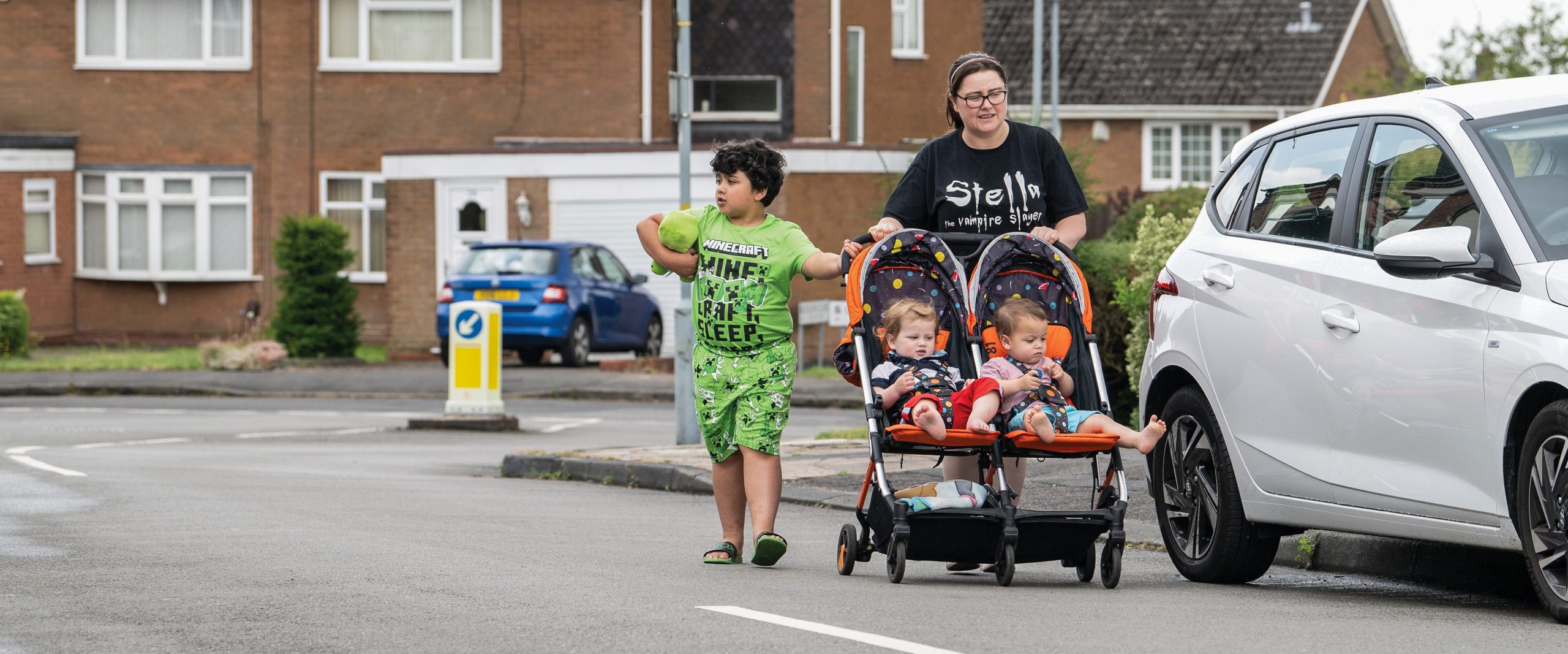
An impressive number of people already walk, wheel or cycle in Birmingham (at least 43% on five days a week or more). That’s according to a new report produced by national walking, wheeling and cycling charity Sustrans, in partnership with Birmingham City Council.
The ‘Walking and Cycling Index’ also showed that active travel has helped to deliver a range of benefits to the city. Every day, walking, wheeling, and cycling in Birmingham take up to 220,000 cars off the road. Each year in Birmingham these three modes combined helps to prevent 1,438 serious long-term health conditions, creates £454.5million in economic benefit and saves 37,000 tonnes of greenhouse gas emissions in the city.
The report found that 52% would like to walk more, 41% would like to cycle more and 58% would like to see the government spending more on walking and wheeling in Birmingham. But it also revealed anxiety amongst one in five residents (19%) who often feel unsafe when walking or wheeling.
There was support from respondents for a range of specific measures including:
• 76% would be helped to walk more by wider pavements.
• 63% of people would find separated cycle paths helpful
- Two thirds of residents (66%) support a ban on vehicles parking on pavements.
The survey of 1,176 residents was conducted from March to June 2023 by social research organisation NatCen and is representative of all residents, not just those who walk, wheel or cycle. Its findings are the strongest evidence yet that public support is shifting towards measures which encourage active travel.
The findings were welcomed by Cllr Liz Clements from Birmingham City Council who said: “As Cabinet Member for Transport, my goal is that we can genuinely be a city where cycling, walking and wheeling are for everybody. It’s for these reasons we’re working hard to deliver the changes necessary to reshape the city, de-prioritise private motor vehicles and reclaim streets and public places for people.”
She added: “There is still time for residents to take part in the consultation on our bold Road Harm Reduction Strategy and I would urge them to do so. We aim to redesign streets to be more hospitable to people and to reduce the speed and volume of vehicles, helping secure a future of active, people-centric travel in the city.”
Clare Maltby, Sustrans England Director, Midlands and East, added: “This study shows that people in Birmingham want neighbourhoods that are safe and bustling. They don’t want to spend their time stuck in traffic or living in fear of speeding vehicles. Birmingham has taken great strides and shows that even the most car-dominated areas can become cleaner and healthier. However, there is still more to be done to ensure cycling and walking is for everyone. I would urge decision makers to take note of these findings as we head into a year of local and national elections.”
The walking and cycling Index (Formerly Bike Life) is the biggest assessment of walking and cycling in urban areas in the UK and Ireland. It is delivered in collaboration with 23 cities and urban areas every two years.
